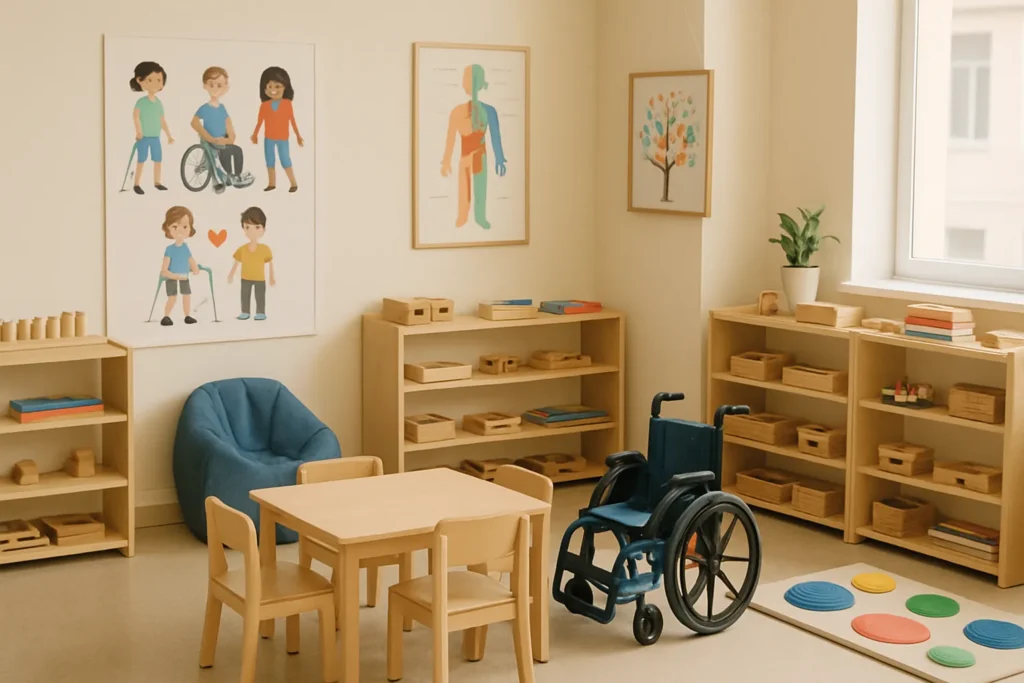History Repeats: Patterns of Exclusion in Private Education
Few stories spotlight the enduring struggle for disability rights in education as starkly as Milwaukee Montessori School’s repeated violations of the Americans with Disabilities Act (ADA). The private school—a pillar in its community—has made headlines for the wrong reasons, most recently agreeing to a $290,000 settlement with the U.S. Department of Justice (DOJ) over fresh allegations of systematically excluding children with disabilities. This episode represents the second DOJ investigation in less than a decade, a telling signal that the hard-won rights of disabled children remain precariously protected even today.
Since at least 2018, the DOJ found, Milwaukee Montessori repeatedly denied admission, expelled, and segregated children with disabilities—sometimes isolating them from their peers, sometimes sending them home early, all without making reasonable attempts to provide necessary accommodations. As chronicled in DOJ files and echoed by disability advocates, the school’s actions were cruelly reminiscent of a bygone era when exclusion was the rule, not the exception.
What does this say about the broader climate surrounding special education? Nationwide, the struggle for genuine inclusion remains fraught. Despite decades of legal advancements—most notably the 1990 ADA and the Individuals with Disabilities Education Act (IDEA)—families consistently face uphill battles. According to a 2023 National Center for Learning Disabilities survey, nearly one-third of parents reported their child had been denied critical supports at private schools. Milwaukee Montessori’s settlement echoes these systemic failures, turning a local dispute into a powerful cautionary tale.
Settlement Versus Justice: The Price Paid—And By Whom?
Under the terms brokered by federal officials, Milwaukee Montessori will pay $240,000 directly to the families harmed by its practices, and $50,000 to the government as a civil penalty for its flouting of federal civil rights law. DOJ investigators relied on the documented experiences of ten children who – as their families attest – suffered through exclusion, early dismissals, and social isolation solely due to their disabilities.
While legal settlements can be a tool for enforcing compliance and offering some restitution, the question lingers: does a financial payout truly deliver justice? The immediate policy changes required by the DOJ—new admissions guidelines, staff training, and routine compliance monitoring—are vital steps forward. Yet the story took an alarming twist. On the very day Milwaukee Montessori signed its consent decree, it filed a motion seeking nearly $440,000 in court costs and attorney’s fees from the family whose complaint jumpstarted the entire investigation. This maneuver—clearly intended to chill future complaints—casts a long shadow over the school’s posture toward accountability and reform.
“Retaliation against families who bravely report discrimination is the antithesis of educational leadership and flies in the face of the ADA’s spirit. Schools that prioritize legal self-preservation over inclusion betray not only the most vulnerable but the entire community’s trust.”
Such actions send a dangerous message: that enforcing civil rights can incur a cost greater than many families can bear. Disability rights attorney Lydia X. Z. Brown, commenting on similar cases, warns that
“the threat of retaliation can scare families into silence, undermining the very laws meant to protect them.”
Beyond that, this isn’t an isolated phenomenon. Private schools across the nation have, with unnerving frequency, skirted ADA mandates by leveraging both their resources and the vulnerability of families—a pattern well-documented in both federal complaint records and investigative journalism. When institutions which profess a commitment to child development behave this way, it prompts a deeper reckoning about the values they truly uphold.
Building True Inclusion: Compliance Versus Culture Change
What would genuine accountability look like in a case like Milwaukee Montessori’s? It’s not just about rewriting the staff handbook or offering staff a new training module. These are minimum standards, not transformative change. As part of the settlement, the school must submit to ongoing DOJ monitoring and annual reporting for two years—a valuable mechanism, but only as strong as the resolve behind it. Head of School David Swanson has publicly committed to following DOJ directives, but community members and advocates will watch closely to see whether these words yield meaningful change.
History offers clear lessons about what happens when institutions fail to internalize the “why” behind ADA compliance. In 2014, the same school settled eerily similar allegations brought by the DOJ and Department of Education. The recurrence of these violations suggests that without a genuine cultural reckoning, compliance can become a box-ticking exercise—temporary, superficial, and ultimately ineffective. Harvard legal scholar Samuel Bagenstos, an expert on disability law, notes, “Lasting change only occurs when disability inclusion is embraced as a core value, not a legal obstacle to navigate.”
What does this mean for Milwaukee, its schools, and families nationwide? The answer is uncomfortable but necessary. True progress requires educators, administrators, and policymakers to build schools where equity—across ability, race, and identity—is foundational. It demands that parents and community members stay vigilant and ready to hold institutions to account, even when retaliation or public adversity may follow.
Disability, after all, is not a problem to be managed or excluded, but part of the rich diversity of human experience. A just and vibrant society cultivates learning environments where all children are entitled to dignity, access, and the tools to flourish—not just by law, but by conscience.

